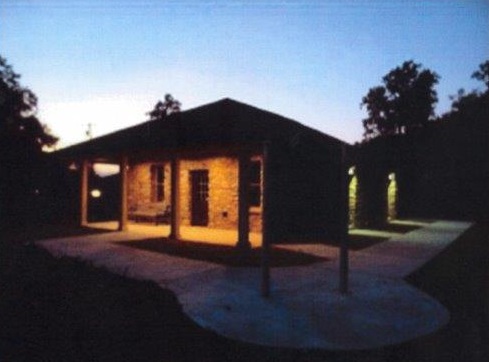Fought during the retreat of Gettysburg, the Battle of Monterey Pass is the second largest Civil War battle fought on Pennsylvania soil with 10,000 from both Union and Confederate forces. The fight took place in the late hours of July 4, 1863 and the early hours of July 5, 1863 during solid darkness and a torrential downpour on a precarious mountainside, spanning two states and four counties.
After the Confederate defeat at Gettysburg, General Robert E. Lee was faced with returning troops, supplies, artillery, wagons, and wounded across South Mountain to Virginia. From July 3 to July 6, the retreating Confederate troops moved across South Mountain. There were two routes the Confederate army took. One was along the Chambersburg Pike to Cashtown, onto Greenwood—today known as Fayetteville—and south to Hagerstown. A shorter route traveled winding mountain roads through Fairfield Gap and across Monterey Pass to Hagerstown.
A twenty-mile train of Conestoga-style wagons retreated on the longer route through Cashtown and was led by Brigadier General John Imboden. With so much rain, there was much mud. The multitude and weight of the wagons made an arduous and long retreat.
The exodus via the shorter route through Fairfield Gap and across Monterey Pass did not escape the terrible impacts of the rain. Men marched on flooded roads and thick mud. In many Confederate soldier’s diaries and letters, it was referred to as Mount Misery or the quagmire. The conditions made night travel even more dangerous because visibility was so limited.
On July 4, Union troops led by General Judson Kirkpatrick removed the Confederate sentries at Fairfield and were able to advance toward Monterey Pass. Brigadier General George Custer charged the Confederates with the 6th Michigan Cavalry, allowing Kilpatrick’s men to reach and attack the wagon train. Ultimately, the Union forces captured more than 1300 Confederate men and destroyed nine miles of wagons.
Today, the site of the battle is along PA Route 16, just east of Waynesboro. The battlefield land is preserved by the local municipality, Washington Township, and houses the Monterey Pass Battlefield Museum, open weekends from April to November. The museum interprets Civil War history, depicts details of the Battle of Monterey Pass, and portrays the historical significance of the region.

